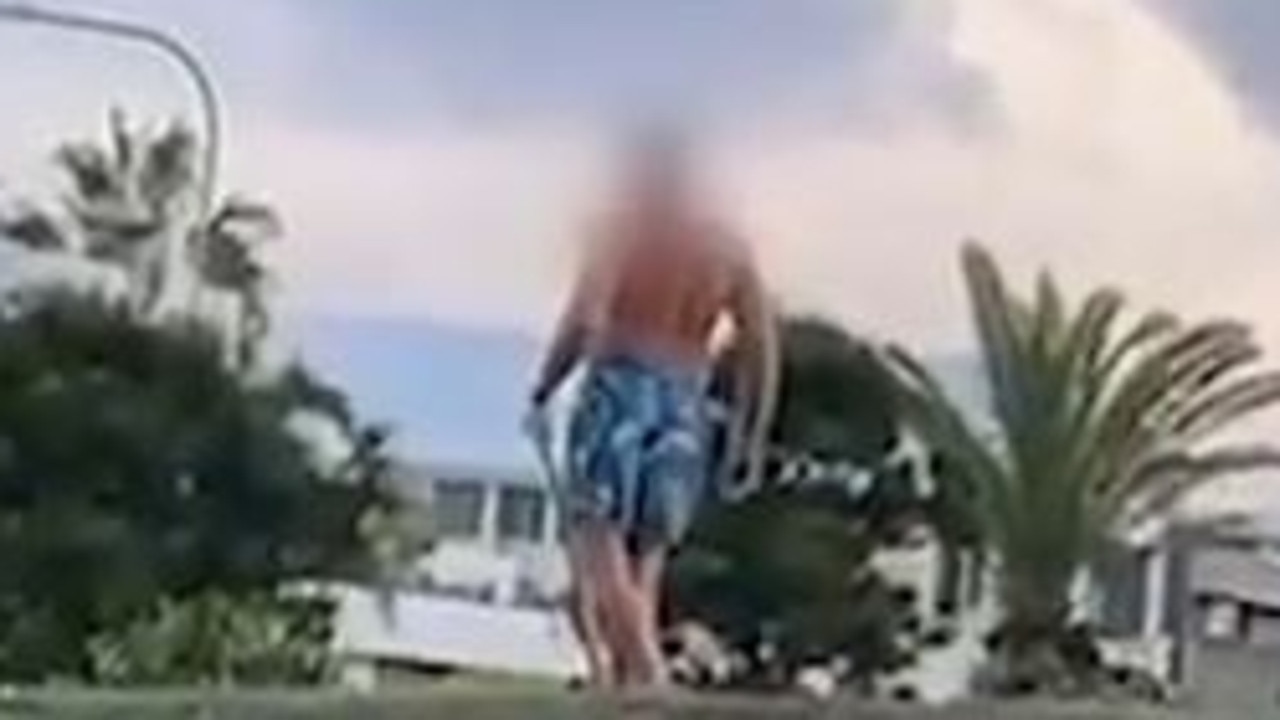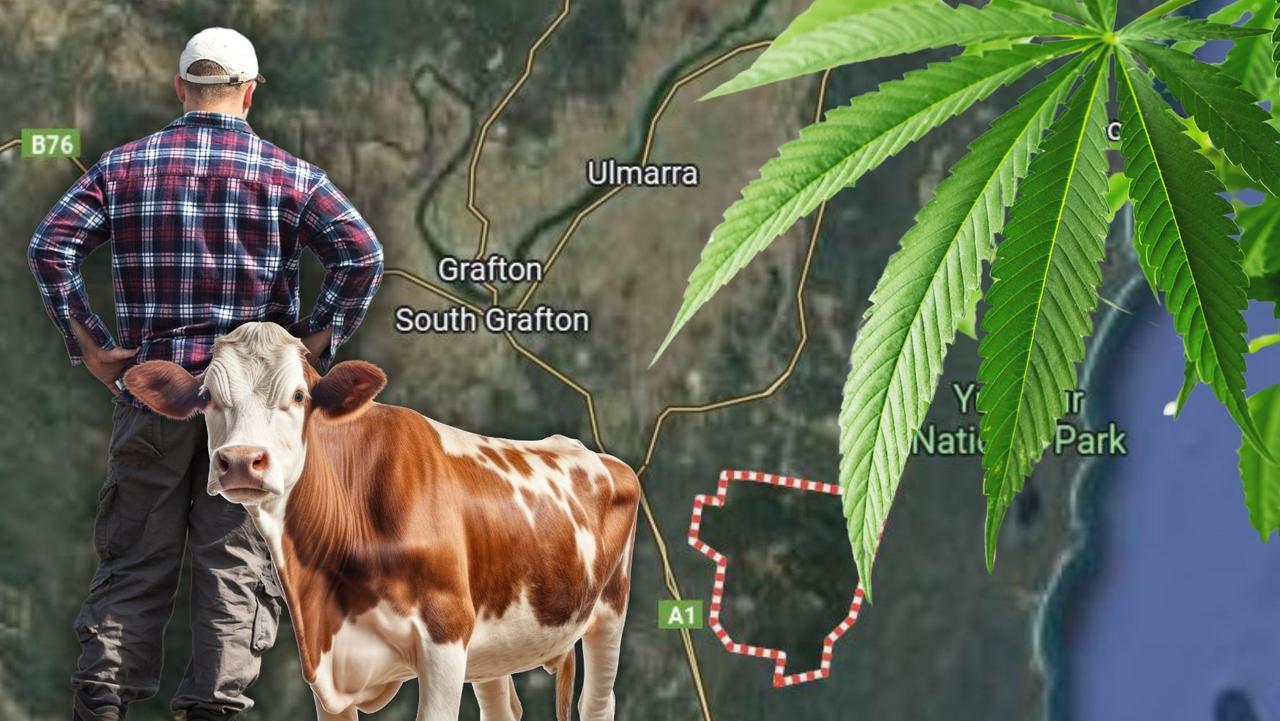Tweed mum Elia Bruce, 31, on rare meningioma tumour pregnancy diagnosis, struggle to buy costly wheelchair accessible car
A Tweed mum with incomplete paraplegia who found a deadly tumour on her spine while pregnant with twins says her boys saved her life. Now, she’s fighting a new battle.
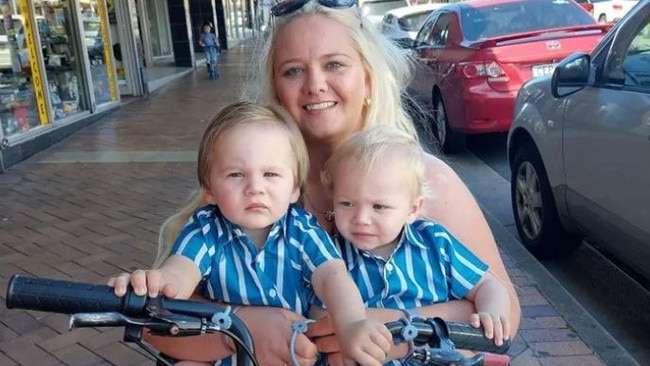
Regional News
Don't miss out on the headlines from Regional News. Followed categories will be added to My News.
A northern NSW mum who discovered a deadly tumour creeping along her spine while she was pregnant with “miracle” twins says her boys saved her life.
Elia Bruce is now battling to significantly boost her independence following the shock find by fundraising for a life-changing wheelchair accessible car for her family.
Ms Bruce, of Tweed Heads, has incomplete paraplegia after the rare meningioma tumour was found on her spinal cord and surgically removed.
“It’s because of the twins that they found it. They saved me. I was just slowly deteriorating for years and not realising,” Ms Bruce said.
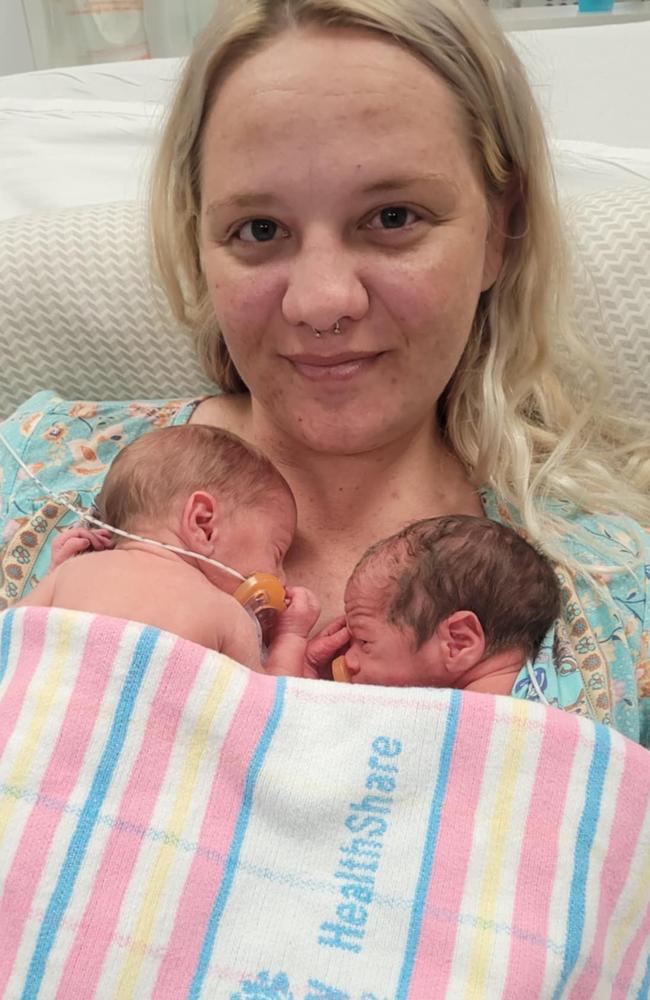
The 31-year-old single mum has faced “chronic” pain since surgery, but has dedicated herself to raising sons Marley and Sebastian. Ms Bruce said the worst of it seemed to almost “melt away” when she was focused on the duo.
“They make me smile all day, everyday,” she said.
The twins were born prematurely about two-and-a-half years ago, as the tumour grew rapidly.
Healthcare workers would likely not have found the abnormal mass of tissue gradually killing Ms Bruce had she not been carrying her “little miracles” and undergoing testing – namely magnetic resonance imaging (MRI).
“When I was pregnant with the boys, it rapidly progressed. I lost mobility in both of my legs,” she said.
“It was my first time being pregnant, I just wasn’t sure (what was happening). I thought maybe it was all something to do with the pregnancy, having the twins.
“Without them, we would have never found the tumour.”
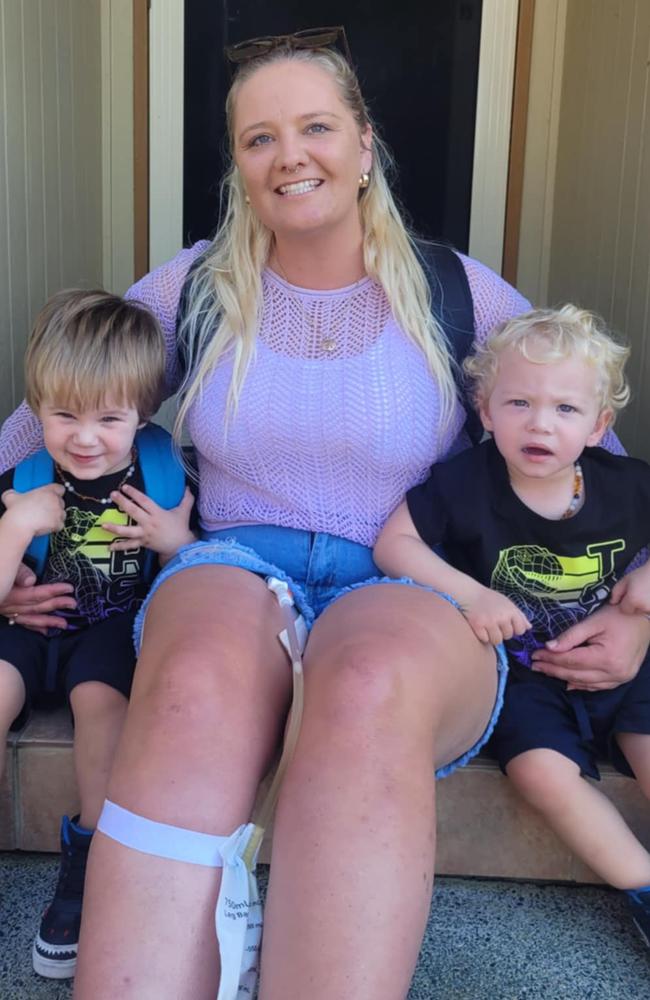
With the tumour gone, Ms Bruce lacks much of the feeling in her legs and contends with other issues associated with incomplete paraplegia, such as nerve pain and bladder control. She described frequent pain as “like fire ants” or “bees are stinging me constantly”.
“It was so hard being a brand new mum, being stuck in a wheelchair and not being able to do the normal things most first-time mums do – and also to have them born early,” she said.
“I was in the neuro’ ward and I had to wheel myself to visit them in the NICU (neonatal intensive care unit) multiple times a day.
“They had complications from being born early. There’s been a lot of hard things for them too.”
Ms Bruce urged others to take their health seriously – to get recurring niggles checked and to avoid turning the other cheek. She was struck by various medical concerns over the years and shrugged them off, not wanting to make a fuss.
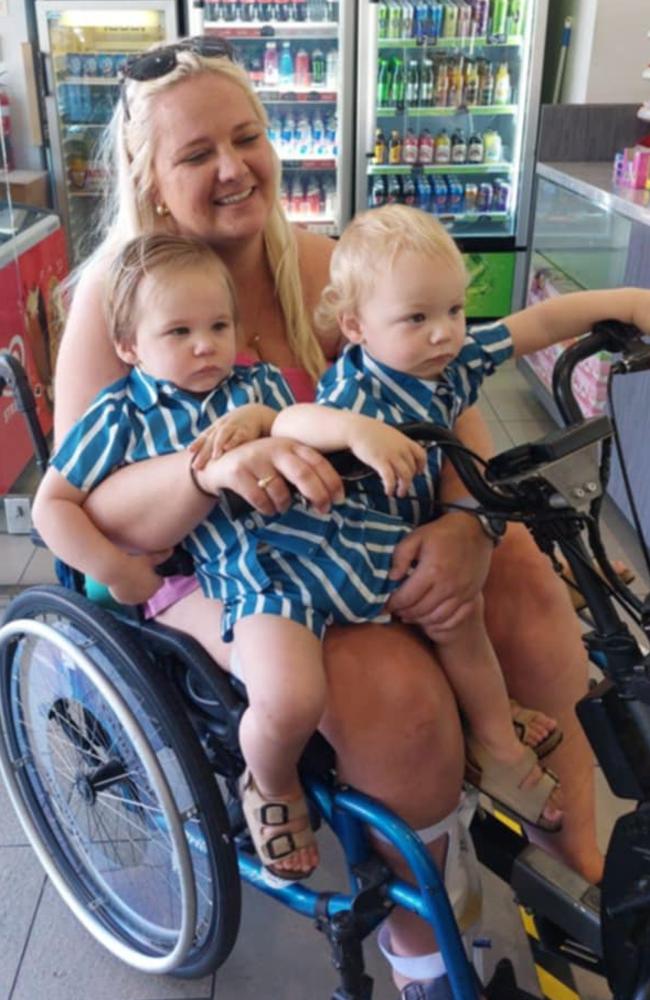
Leg spasms, muscle weakness, swelling in her legs and other problems were eventually linked to the tumour. On at least one occasion, Ms Bruce attributed symptoms to a sports injury.
“I’ve always been a strong, hard worker, doing labouring and that sort of thing,” she said.
“I just thought ‘it’ll be right’.
“I might have had this tumour since I was a child and it was just never picked up on.”
Ms Bruce has been relearning to walk, determined to snatch back as much independence as possible, but needs a wheelchair-accessible car to travel to hospital and appointments.
Family, friends, the National Disability Insurance Scheme (NDIS) and wider support networks provide transport help, but complexities of Ms Bruce’s condition, equipment – and having the boys in tow – means an modified van or similar would make a world of difference.
“There’s a lot of things I obviously can’t do anymore, but there’s a lot I can do,” she said.
“I want to be out in the community and be active, healing myself … I just want to live my life. To get back into things I enjoy.”
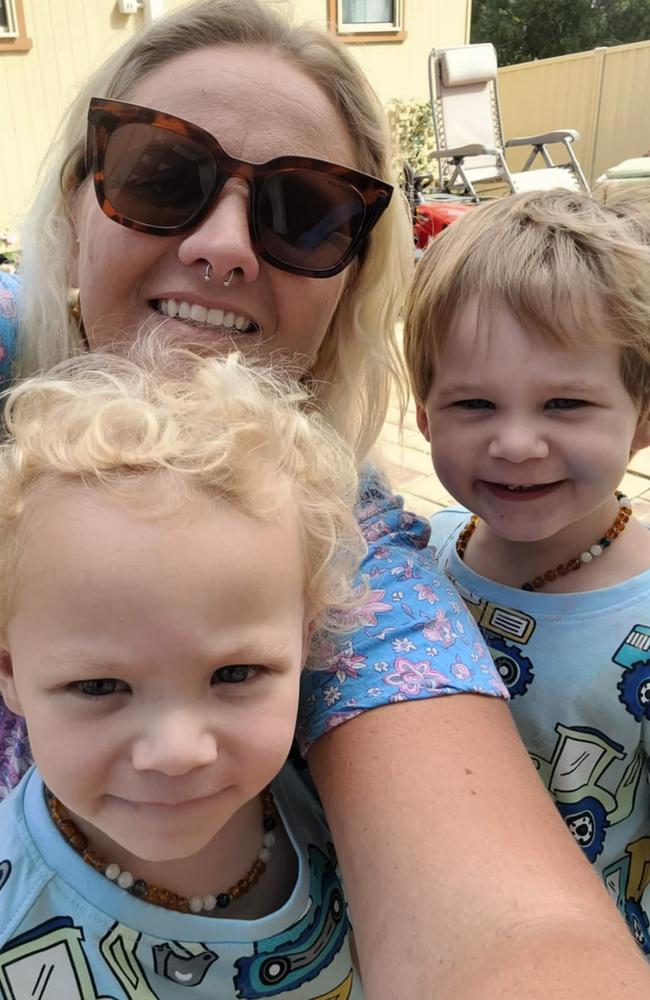
The problem? Suitable vehicles cost a fortune – it’s a stretch too far for Ms Bruce, who has already been slugged with a mountain of costs during her health battle.
She was hesitant to ask for help, but at a loss on how to move forward.
Ms Bruce, who has set up a GoFundMe page online, praised charity Spinal Cord Injuries Australia (SCIA) for their help since her diagnosis and surgery.
Meningiomas – the most common type of brain tumours (25 per cent) – develop from the meninges, which charity Rare Cancers Australia states are layers of tissue covering the brain and the spinal cord in the central nervous system. The tumours are often non-cancerous, or benign, but may become cancerous, or malignant.
Got a news tip? Email luke.mortimer1@news.com.au.
More Coverage
Originally published as Tweed mum Elia Bruce, 31, on rare meningioma tumour pregnancy diagnosis, struggle to buy costly wheelchair accessible car




